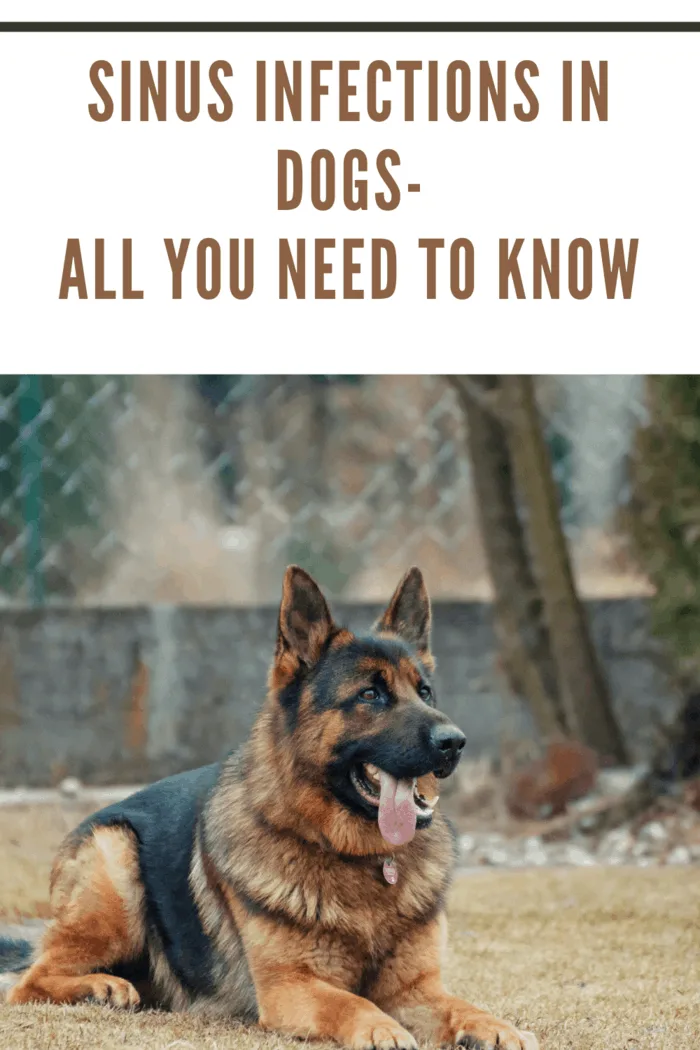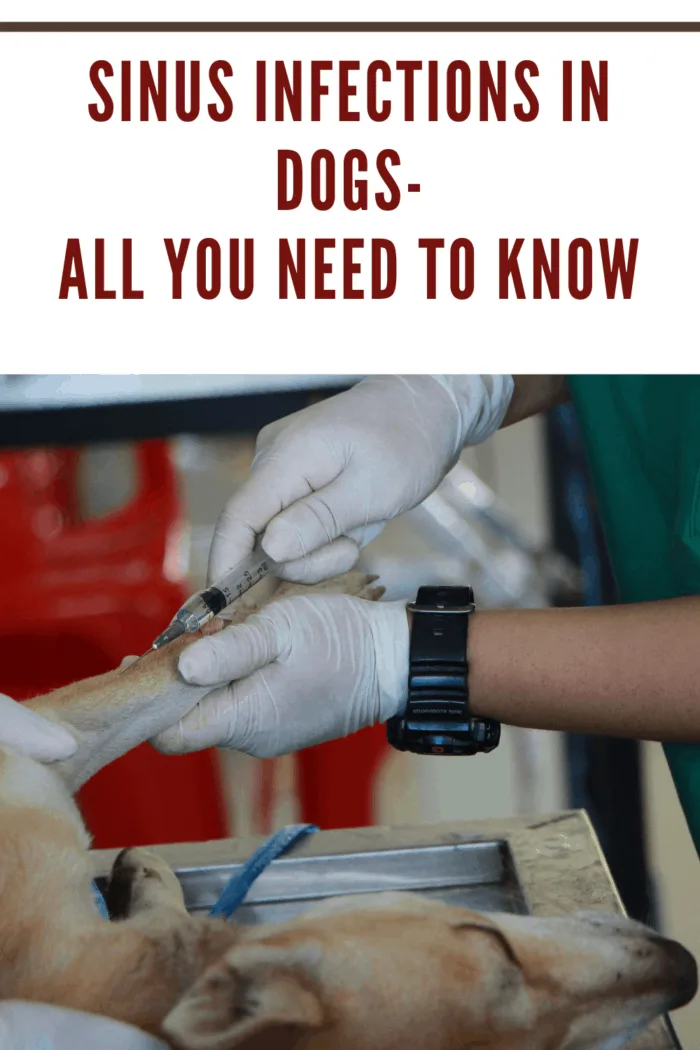A sinus infection in humans can be caused by allergies, the common flu, or even air pollution.
Using antihistamines, antibiotics, or nasal decongestants is an effective way to help you breathe normally again.
Our beloved pet, who is oftentimes considered part of the family, can experience similar sinusitis symptoms like sneezing, watery eyes, or a runny nose. (Web MD)
In a healthy nose, the mucus works together with the cilia or the smaller hairs in your nose to filter out the small dust particles and bacteria.
Sneezing helps push these particles away from your nasal cavities.
However, when the sinus passages become inflamed and the mucus is unable to channel out these particles, a sinus infection can occur.
Like humans, a dog sinus infection happens when the lining of the nasal passages becomes inflamed.
It may lead to headaches, fever, itchy or sore throats, coughing, loss of appetite, or occasional nose bleeds.
Reactions to the environment are one of the leading causes of sinus infections in dogs or vulnerability and exposure to allergens, bacteria, fungi, or insect bites.
If the symptoms continue and your dog is experiencing unusual discomfort, it is essential to schedule a trip to the veterinarian as soon as possible for an intensive examination.
A veterinarian will check your dog’s nose, and eyes, and may order a series of x-rays to examine the chest to establish the root of the issue and the magnitude of the infection, nasal blockage, or congestion.

Photo by Adam Kontor from Pexels
What to look out for?
Sinus infections can affect dogs of all ages, but younger animals are more susceptible.
We have listed the following causes below with the help of Covetrus:
- Environmental allergens
- Weak immune system
- Bacteria
- Fungus
- Autoimmune disease
- Asthma
- Insect or parasite bites
- Viral infections
- Dental issues
- Cancer
- Accident or blunt force trauma
- Foreign body inside the nasal cavity
Symptoms may include coughing, sneezing and nasal discharge or bleeding, hard time breathing, watery eyes with discharge, retching, facial swelling or swelling around the eyes, fever, appetite loss, weight loss, dehydration, and changes in behavior, to name a few.

Photo by Pranidchakan Boonrom from Pexels
What’s the best treatment for your dog’s sinus infection?
First and foremost, it is essential to know that using over-the-counter drugs intended for humans should not be used on your pets.
Always seek the advice of your veterinarian, who may prescribe antihistamines, antifungals, or antibiotics to heal your dog’s sinus infection.
Medicines meant for people may be harmful to pets.
Sinus inflammation can be complicated because the initial symptoms may appear like just a common cold.
However, a normal cold should clear up in a few days.
Do not compare it to a human’s allergies that can quickly go away after a dosage of antihistamine.
A quick vet visit is necessary if you notice excessive sneezing, nose bleeds, or mucus secretion ranging from a clear grey color to a dark thick green.
A nose discharge may signify a dental abscess, infection, a reaction to foxtail grass (Pets Web MD), a dust mite, or even a tumor. In more serious cases, a veterinarian may need to take an x-ray and an endoscopy to examine the nasal cavities more effectively, says Pet Place.
Once home, keep your dog comfortable and in a temperature-regulated space that is not too warm or too cold for your dog to recover.
If you have a humidifier machine in your home, this may help clear the air and make it easier for your pet to breathe.
Try to keep to the prescribed dosages and complete the course of medication as suggested by your veterinarian.
Duration of one to two weeks should yield positive results; if symptoms persist, it is best to return to your veterinarian for a follow-up check-up or seek a second opinion from an expert.
An accurate and immediate diagnosis is the path to how well treatment can work for your dog.
Homecare tips for a pet diagnosed with sinusitis:
After returning home from the veterinary, it’s important to follow these tips for providing home care for your pet when diagnosed with sinusitis:
Run a humidifier or a vaporizer (Healthline). It is a good investment if you do not have one in your home. Increasing the moisture in the air can aid the drainage of the nasal passages.
Feed your dog nutritious food to build up its immune system.
Use a sanitized warm cloth to wipe away excess mucus from your dog’s nose.
Clean water and food bowl regularly. Encourage your pet to drink water by providing a continuous supply of water. Increased water intake will clear congestion.
Provide a conducive space to sleep which is comfortable and quiet.
Separate your unwell dog from your healthy pets around the house.
Follow your veterinarian’s prescription.
Animals who have a poor appetite should be offered their favorite food to encourage them to eat or get a stronger-smelling protein like beef or fish that can rouse their hunger.
In conclusion
To successfully treat your dog, it is important to spot the underlying symptoms of sinusitis and the reasons for the infection.
Be vigilant in observing your dog’s demeanor to be fully able to discuss with your veterinarian.
Medication is most effective when the treatment occurs at the early stages of the illness.
Providing proper care not only helps make your dog feel comfortable but will ensure a future of good health and many more happy years with your beloved four-legged friend.
